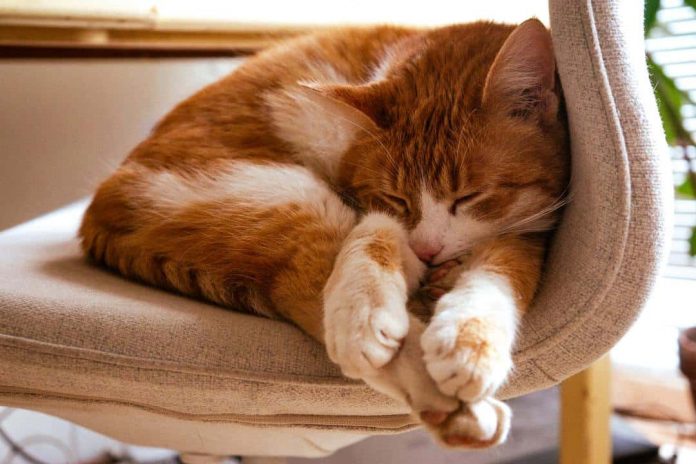Veterinarians are skeptical but here’s what you should know about your cat and pain.
The essentials
There’s not enough evidence to prove that cats get headaches — Researchers can’t pinpoint primary headaches in cats, and it’s not like we can ask them if they have a headache.
However, cats can experience pain and discomfort — We do know cats can experience head pain associated with other diseases.
It’s up to us as cat owners to detect when our animal is in pain — You’ll want to know the signs and symptoms that your cat may display if they’re in pain.
There’s not enough evidence to prove cats get headaches
While you can easily complain of a tension headache, the same isn’t the case for our feline friends. It’s very possible that cats may get headaches, but there’s little to no scientific evidence to prove it. So, sure, it’s totally possible that your cat could have a headache. But, it’s more likely that they could have head pain as a result of a health condition or illness.
Cats can experience pain or become lethargic and sluggish when something’s wrong. They generally display telltale signs of pain through their actions and habits. Many cats try to hide their discomfort or pain, so it’s important for pet parents to be aware of what’s “normal” for their pet and what’s not.
How to tell if your cat is in pain
Cats may be in pain because of many health conditions such as arthritis, dental problems, urinary tract infections, bone diseases, and cancers. Here are some telltale signs that you should always watch for to know if your cat is in pain:
Vocalizing. In the way we cry or moan, a cat in pain may meow, purr, hiss, or growl.
Increased agitation. Cats may withdraw from social interaction, stop grooming, and fail to use the litter box.
Panting. Cats only breathe heavily or with an open mouth when they’re stressed, in pain, or overheated.
Decreased appetite. They may stop eating regular food that they usually like.
Decreased thirst. Felines often stop drinking any water or using their water fountain when they’re uncomfortable.
Lethargy. Your kitty may sleep more than usual, rarely moving from the same spot or position.
Aggression. They may act out of character, hiss, growl, or bite family members.
Protective. They’re not putting weight on their paws and won’t let you pick them up or pet them.
Signs of distress. They limp, keep one eye shut, or tilt their head to one side.
Straining. They strain to urinate or defecate.
Hiding. They won’t come out from under the bed, a closet, or some other tight corner where you can’t reach them.
What to do if you think your cat is hurting
If your cat is experiencing any of the above symptoms and you believe they may be in pain, it’s important to schedule an appointment with your cat’s vet right away. A veterinarian will be able to determine what’s going on with your cat and what may be causing their discomfort. According to AVMA , a new scoring system can even help veterinarians use a cat’s facial expression to determine how much pain they’re in.
Your cat’s veterinarian will likely conduct an examination and run tests like blood work, X-rays, or scans. Remember, no sign is too small, so if you notice even the smallest thing off about your cat’s behavior, please let a vet know.
Tips to keep your cat healthy
There are many ways cat parents can keep their felines happy and healthy. Here are a few ways to ensure you’re doing the best to keep your cat in tip-top health:
Check that your cat is eating — Are they eating all their food and not skipping meals?
Make sure your cat stays hydrated — Water is essential to cats, and dehydration can cause many health problems. Cats should drink 4 ounces of water per 5 pounds of body weight each day. Make sure you replace your cat’s water daily.
Consider buying a cat water fountain to encourage your cat to drink more water
Playtime contributes to your cat’s happiness — Make time to play with your cat using their favorite toy, string, or catnip. Playing chase a string or rolling a kitty ball keeps them active, enriches their environment, and helps them bond with you.
Provide parasite prevention — Parasite protection is easy to administer and effective in keeping your cat healthy and itch-free. It’s essential to protect your cat from ticks and parasites.
Keep their litter box spic and span — Cats are naturally clean animals and prefer a regularly cleaned litter box. What’s more, when you regularly maintain their litter box, you can keep tabs on digestion issues and urinary problems.
Don’t skip their annual exam — Just like humans need medical tests and exams, your cat needs to see the vet annually. This is especially important as they age so they can receive needed screening tests and vaccinations.



























